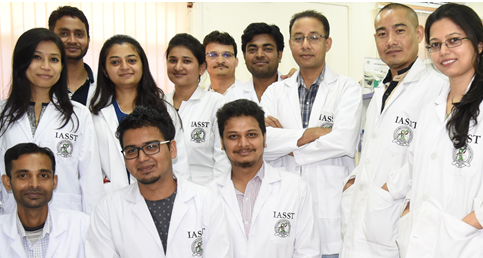A study by Indian scientists reveals, besides environmental, biological and genetic factors, ethnic factors also play a role our intestinal health.
Intestinal health is known to be influenced by environmental, biological and genetic factors. A new study suggests ethnicity – a cultural factor – may also have a role to play in keeping our stomach healthy.
Gut microbes especially bacteria are essential to maintain good digestive health. Gut microbiota composition may also determine the level of gene activation, such as for polysaccharide and bile acid metabolism. Genes related to bile acid metabolism were reported to be enriched in the gut microbiota.
Therefore, a study of bacteria and metabolites could yield important clues to any person’s health. Scientists at the Institute of Advanced Study in Science and Technology, Guwahati, have attempted to do this among members of tribal communities. They have found that the type of gut bacteria found among people vary with their ethnicity.
“This finding is significant as people from the community can be made aware of the risk they face and suitable preventive measures can be initiated such as regular follow-ups for any signs of the disease,” said Dr. Mojibur R. Khan, who led the study.
The study included men and women belonging to five tribes – Tea-tribe (which has a Proto-Australoid origin), Bodo, Karbi, Tai-Phake and Tai-Aiton tribes of Mongoloid origin. All study participants were of rural background, practiced farming and were non-vegetarian. Rice is their staple food along with cereals, vegetables and tubers. The study builds on earlier work done at the institute which had shown a similarity in gut microbe profiles of the Tea-tribe and Tai-Phake and between Tai-Aiton, Bodo and Karbi tribes.
Individuals of same ethnic group had more similar profiles of gut bacteria and their metabolites. This has important implications for health. For instance, the metabolite profile of the Tea-tribe contained aniline, benzoate and acetaldehyde which may cause colorectal cancer.
“This finding is significant as people from the community can be made aware of the risk they face and suitable preventive measures can be initiated such as regular follow-ups for any signs of the disease,” explained Dr. Mojibur R. Khan. “However the sample size was too less and needs a much larger size to come to a definite conclusion.”
Additionally, useful Lactobacillus and Roseburia bacteria or butyric acid supplements can be given to people to prevent colorectal cancer.
Dr. Khan told Indian Science Journal, the core faecal metabolite profile of the Tea-tribe contained aniline, benzoate and acetaldehyde, which are known to have carcinogenic potential. He said, further analysis on the gut microbial and metabolite profile of this tribe is being carried out for more details.
Regular analysis of metabolites could be cheaper way to keep track of persons who are at risk of acquiring a disease. On the other hand, more expensive tests to detect presence of cancer cells can be done only when there is a clear indication of disease.
The study offers hope to ethnic groups in India and around the world by encouraging researchers to identify population-specific disease markers through gut and metabolite profiling useful for prevention, early detection and intervention of disease. Subsequently, cheap diagnostic tests can be developed using the profiling data.


